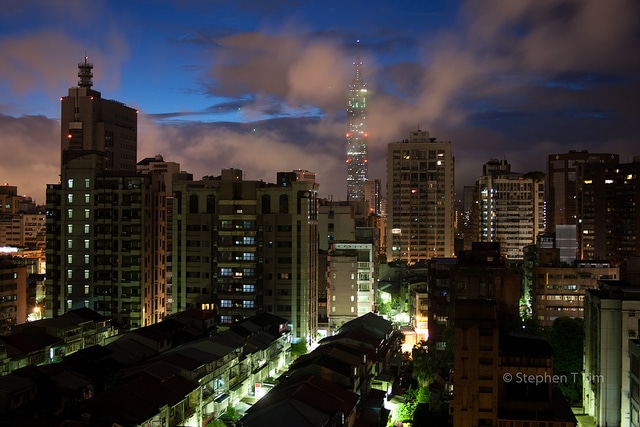Comedy is culture, and my favorite way of defining culture is to answer the question: “How do we do things here?”
Because I now spend my time in Beijing, studying the way Beijingers walk (fast, with little regard for traffic lights or other pedestrians), the way Beijingers speak (fast fast fast and then sloooow, stretching out certain words like 真的(zhen de) or “reaaaaally”), and how Beijingers interact, I have learned a distinctly Beijing type of Chinese.
Were I to be Chinese, I would surely be from Beijing. When I speak, walk, and live in Chinese, I am a Beijinger—and strangely enough, I was never more aware of this than in Taiwan.
The foreigners from the mainland tend to be louder than the Taiwanese, dress oddly compared to the Taiwanese, and stumble their way through common everyday occurrences by jay-walking and forgetting that there are no drinks allowed on the subway.
I realized that while speaking Chinese and walking through Taiwan, I didn’t feel like an American. I felt like a mainlander.
“How do we do things in Taipei?” Not the Beijing way, that’s for sure. My Beijing body language, with its large gestures, attracted stares as I walked down the street talking to friends. My Beijing cadence and sentence construction made people screw their brows up in confusion—apparently asking a ton of rhetorical questions isn’t the way they do things in Taiwan.
And my accent? That was what revealed me most of all. Adding in “–r” noises to the ends of words and clearly pronouncing the “Zh-“ “Ch-“ and “Sh-“ sounds made me stick out like a sore thumb.
I started to worry whether people would begin applying the stereotypes about mainlanders to me. The worst part of it was that Chinese Jesse actually seemed to embody those stereotypes pretty well. Whenever my brain asked the question “How do we do things here?” the gut reaction was always a little bit off.
Then I remembered: I’m white! Nobody, not one, not ever, will think I am a Mainland Chinese. They will just say, “He studied Chinese in the mainland,” and chalk everything else I do strangely to the fact that I’m white—not that I am a strange disembodied Beijinger. My identity crisis, ironically, had been solved from “with-out.”
The strange truth was that a lot of the aspects of Taiwan that conflicted my gut reactions to the culture question, “How do they do things here?” were actually things I liked about Taiwan. They conflicted with the Beijing part of me but not the American part of me. I was like Gollum from Lord of the Rings: I hated and loved Taiwan, as I hated and loved myself. The parts of me that loved America were glad when I was told politely not to bring a drink on the subway… but the part that loved the bustle and brashness of Beijing hissed loudly inside my head.
I had thought that I gained one identity when I grew up in America and another identity while living in China. But perhaps it isn’t so clear-cut: perhaps I still am just myself, a product of this strange and magical world that has allowed me to spend a good bit of my formative years six thousand miles from home, and these strange conflictions are merely a result of the fact that I am not a “pure” (as if such a state existed) representative of any one culture anymore—rather, I am a tribe of one, with the mannerisms and culture of someone who has lived my specific and exact experiences, and whose answer to the question “How do we do things here?” is constantly changing.


